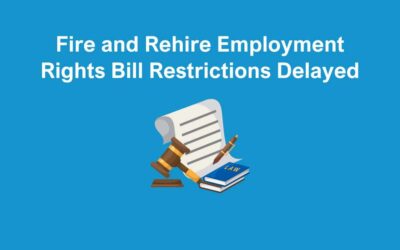The UK Government has introduced draft legislation regarding part time holiday entitlement calculations, which is set to come into effect in April 2024. These changes are being introduced to address the confusion when it comes to calculating holiday entitlement for workers with irregular hours or those who work only part of the year. This decision by the government has been a result of consultations regarding retained EU employment law reforms.
This update is welcomed by many employers after the confusion caused by the Supreme Court decision in Harper Trust vs Brazel in 2022. This ruling established that part-year workers on permanent contracts are entitled to the same statutory annual leave as full-time workers, challenging traditional holiday pay calculations. This new legislation on holiday pay aims to simplify this and make holiday entitlement fair for everyone.
Here are the key aspects of the new regulations on part time holiday entitlement calculations:
Holiday Entitlement for part-year and irregular hours workers
The new laws aim to simplify the way holiday pay is calculated for these part-time workers . This simplification allows employers to easily determine the amount of holiday pay owed to part-year and irregular hours workers.
Therefore, the annual leave accrual for those with irregular part-year hours will be set at 12.07% of the hours worked. This change provides a clear and consistent method for calculating holiday entitlements.
Rolled Up Holiday Pay
A significant change is the introduction of ‘rolled up’ holiday pay. This system allows employers to include an amount for holiday pay on top of regular hourly rate in pay packets. This method for part time holiday entitlement is particularly beneficial for workers with irregular hours as it ensures they receive holiday pay proportionate to their working hours.
In a 2006 European Court of Justice ruling, rolled up holiday pay was made unlawful. This was due to the risk of employees not being incentivised to take annual leave as they can earn more holiday pay by remaining at work. Despite this ruling, this will now be allowed for irregular hours workers and some agency workers.
During the consultation process, 45% of respondents said they were not in support of rolled-up holiday pay. This was because they felt it may lead to less pay or missed leave. In response to this, the consultation recognised that this won’t be available for full-time employees. However, this type of holiday pay still offers benefits for certain part-time and irregular hours workers.
TUPE
Alongside part time holiday entitlement, the Government is set to introduce new regulations regarding TUPE. TUPE is a legal framework that protects the rights of employees when the business they work for is transferred to a new employer.
The changes will allow small organisations to engage with their staff directly if there’s currently no worker representatives in place. If there are representatives in place such as trade unions, employers must consult with them.
In Conclusion
These reforms are designed to provide clarity and fairness when calculating holiday pay for part-year and irregular hours workers. The changes are expected to benefit a significant portion of the workforce, particularly those in flexible or non-traditional employment arrangements.
This update will require a quick turnaround. In addition, we encourage you to plan for this update as soon as possible to avoid any issues. If you would like support with part time holiday entitlement calculations, contact our HR Consultants now.







